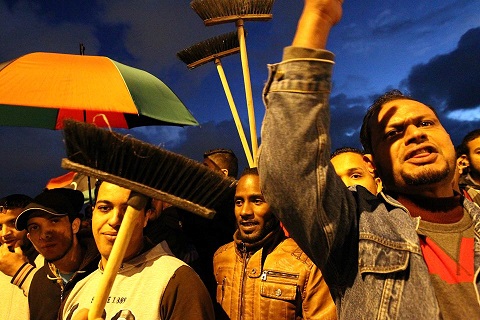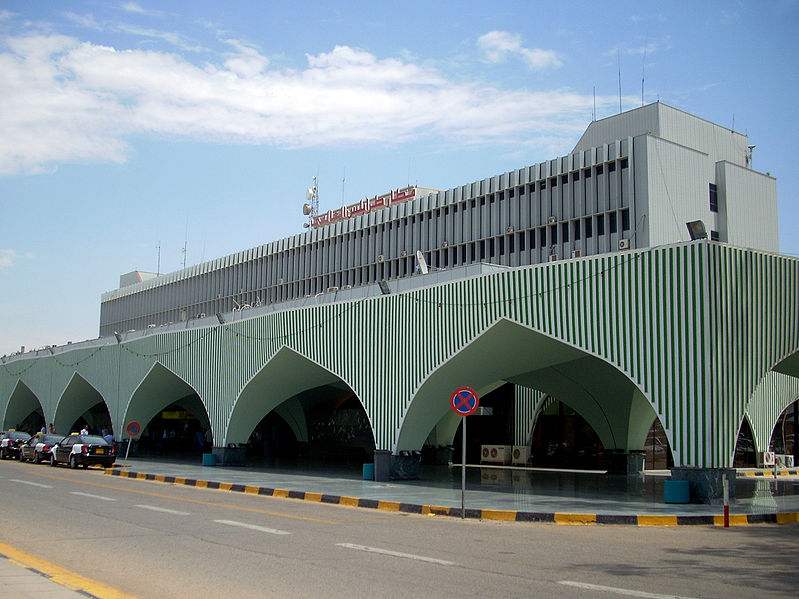By Sami Zaptia.
Tripoli, 28 December 2013:
Mahmoud Jibril, former head of the Executive Office (effectively Prime Minister) under the National Transitional Council . . .[restrict](NTC) and head of the moderate National Forces Alliance (NFA) political party launched a new initiative Thursday night called “The National Salvation Initiative”.
The initiative comes on the back of the contested decision by Libya’s interim legislative body, the General National Congress (GNC) to “preliminary extend” its life beyond February 2014 and until 24 December 2014.
The decision to extend the lifetime of the GNC is contested as there is no broad agreement as to when in terms of time frame is the tenure of the GNC is supposed to expire. The two main contesting views are on the one hand, that the GNC should remain in power until it completes all its tasks as set by the Transitional Constitutional Declaration (TCD) of August 2011 – irrespective of time.
The subscribers to this view see the timeline suggested by the TCD as just that – a suggestion and a guideline to aim for.
The two main remaining tasks of the GNC are the drafting of a constitution and organising elections for a fully empowered legislative body to replace it.
The other and opposing view is that the GNC was obliged to complete these tasks, but within the time frame set in the TCD which is calculated as ending by holders of this view on February 7th 2014. They feel that the GNC should either at best seek a reaffirmation by some kind of popular vote of its legitimacy, or that it should be dissolved.
The popular perception that the GNC has performed poorly since its election in July 2012, especially its inability to choose a government that can improve the security situation, create an army and police, disband the militias, etc, has meant that the GNC’s decision to extend its lifetime has been met with disapproval.
It is worth noting however, that the GNC refers to its extension vote as a “preliminary extension” , leaving room for adaption and reversal of the decision, as well as probably indicating an uncertainty about its legality.
In his widely televised and lengthy address, Mahmoud Jibril covered a series of topics, including security, creating a police and army, the enrollment of the militias, the spread of arms and a buy-back policy, the mis-spending of public money, the economy, loans to youth and former militias, development, training, SME projects, local government, reconciliation, transitional justice, the media, foreign intelligence conspiracies against Libya, the role of Sharia, the Political Isolation Law, a law forbidding the handing over of Libyans to foreign states and drafting the constitution.
With regards to the role of Islamic Sharia, Jibril said that Islam is the “identity” of Libyans and that it is “the source of legislation” in Libya, in what seemed to be a removal of one of the most divisive issues between his NFA party and the Islamist Justice and Construction Party (J&C). If Jibril’s olive branch to the J&C party is what it seems, and is accepted by the J&C, then this should pave the way for an easier drafting process of the constitution.
On the face of it, not only would it also bring the two leading parties closer, but it would draw a distinct line between them and the more fundamentalist or extremist Islamic groupings.
With regards to arms collection, Jibril said that a buy-back policy should be initiated setting a deadline, with a pricelist for light and medium weapons.
As for heavy weapons, Jibril suggested that every city hands in its heavy arms such as tanks and rockets, on the bases that their equivalent value is invested in those cities in projects, therefore exchanging “arms for construction and development”.
Jibril also suggested that former militia members who are “qualified” should get “priority” in state jobs as well as training in security and that the consequences of the spread of arms could lead to a civil war.
The NFA head warned that the poor security and weak government in Libya creates an environment for “foreign conspiracies and foreign intelligence agencies”. Jibril said that there were communications between “Arab and Western states conspiring against the future and unity of Libya”. To this end, Jibril saw no alternative to “creating a police and army”.
With regards to youth and employment, Jibril suggested providing “comprehensive loans” that provide for housing, marriage and a small business project so as not to “militarize society”.
Getting to the pertinent issue of the hour, the quasi-constitutional crises created by the GNC’s failure to fulfill its TCD’s obligations by February 2014 and its decision to extend its life to December 2014, Mahmoud JIbril offered a broad range of options.
Jibril said that one option would be to adopt the 1963 constitution and vote a no-confidence vote in the Ali Zeidan government and appoint a National Salvation government. The present GNC could continue until Parliamentary elections in June 2014 with parallel elections of its head, to become the head of state, with this new head of state either appointing a new Prime Minister or the head of state renewing his confidence in the present Ali Zeidan government.
Other suggestions in Jibril’s initiative included reforming the Political Isolation Law, which would exclude all those who participated in the February 17th Revolution (This would include Mahmoud Jibril himself), appointing as opposed to electing municipality leaders (as favoured by the present Prime Minister Ali Zeidan) and creating a code of honour for local Libyan media.
When the Mahmoud Jibril initiative was advertised ahead of its broadcast, it was thought that maybe the major political parties and grouping, who have been holding meeting recently, including those mediated by UNSMIL, had reached a behind the scenes agreement.
More importantly, it was assumed that they had convinced enough “independents” to obtain the magic 120 votes within the GNC to enable them to remove the Zeidan government.
However, the width of Jibril’s so-called initiative was more of a shopping list of proposals being put on offer, which suggests that a deal has not been struck by the political powers.
This anticipation of an agreement was added to by the fact that both parties seemed to have withdrawn their support for the Zeidan government in the form of statements of criticism made by Mlegta and Suwan recently, the heads of the NFA and J&C Partes.
Moreover, the J&C Party released a statement after Mahmoud Jibril’s initiative broadcast indicating that they were prepared to continue to study other alternative proposals, despite their support for the extension of the GNC’s tenure.
[/restrict]










